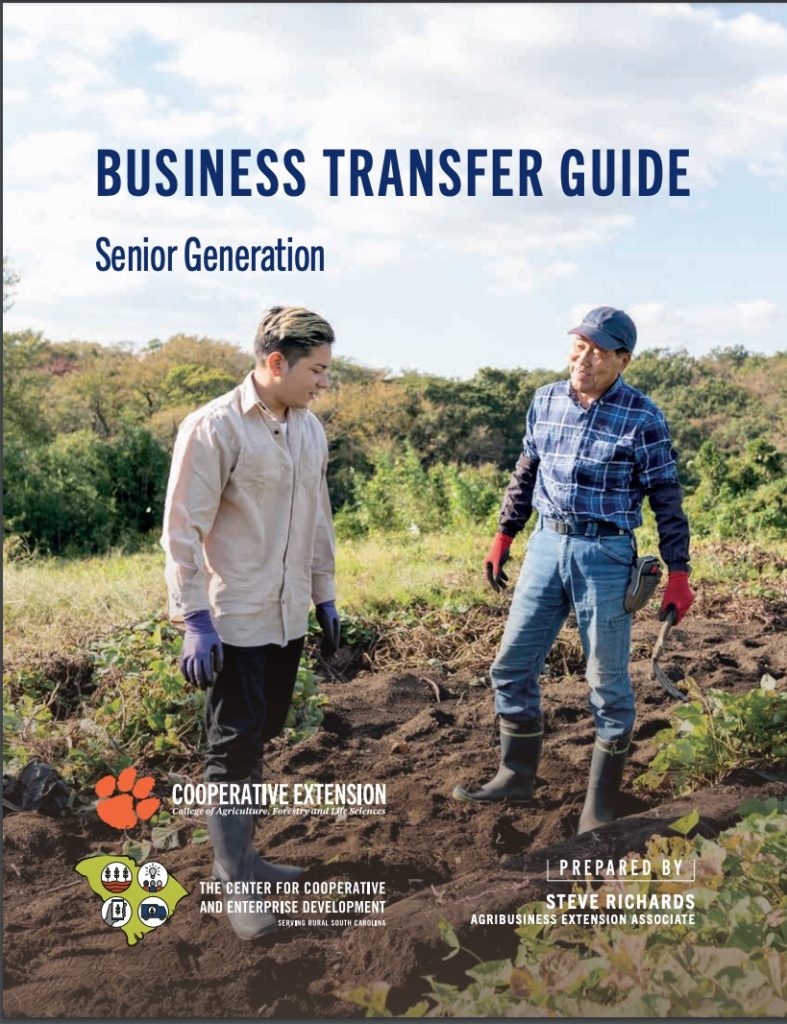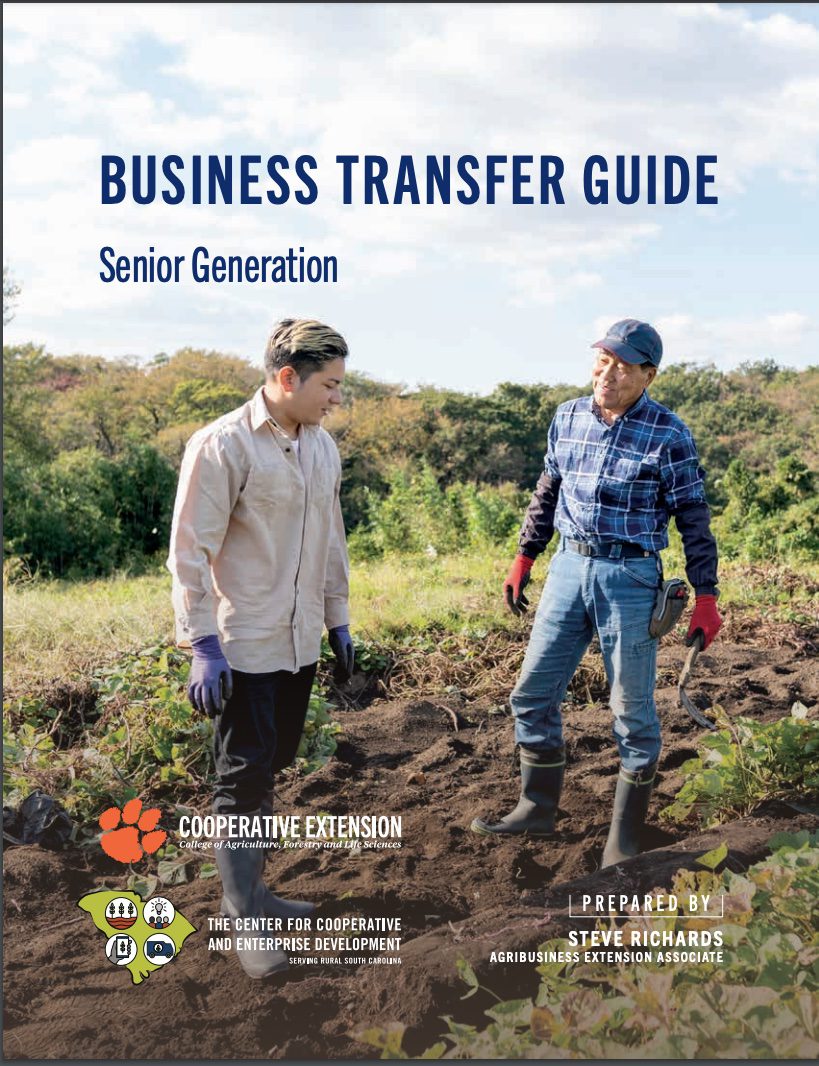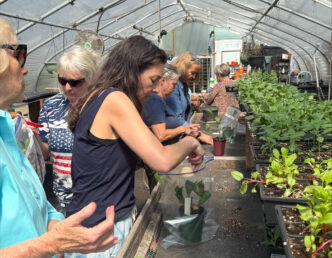According to the USDA’s 2017 Census of Agriculture, the average age of South Carolina farmers is 58.2 years old, and 96% of the state’s farms are family owned.
With numbers like those, it’s no secret that the orderly transfer of farms from one generation to the next is essential to the future viability of South Carolina’s agribusiness industry and the state’s tradition of family farming.
A publication by the Clemson Cooperative Extension Service that guides farmers through the process of keeping farms in the family was named a 2021 Notable Document by the South Carolina State Library.
The publication, Business Transfer Guide: Senior Generation, is the brainchild of Clemson Extension Agribusiness associate Steven Richards. Richards is part of a team of Clemson Extension agents and specialists who provide information and education on the use of business and economic principles for making decisions involving agriculture, natural resources and communities. The Clemson Extension Agribusiness Team is based out of Clemson’s Sandhill Research and Education Center in Columbia, South Carolina.

“The goal of this workbook is to keep the farm transfer discussion moving forward, as families often put off these sorts of discussions for too long,” Richards said. “This workbook has fill-in-the-blank worksheets, farm transfer examples, and thought-provoking questions for the senior generation of farm owners. My hope is that farm families in South Carolina can use this workbook to get the farm transfer process started.”
The workbook’s graphic design was done by Stephanie Finnegan Design and Photo. Scott Mickey, also a member of the Clemson Agribusiness team, helped with current and future business analysis examples.
The publication is part of a series of business transition workbooks that takes farmers through the farm transfer process step-by-step at their own pace. It is one of an array Clemson Extension Agribusiness resources and programs on topics such as starting an agricultural business, creating a joint business agreement, using farm assets for retirement, estate planning for farm families and much more.
“The agribusiness team receives requests each year for information or assistance with how to begin and plan for succession of a family farm,” said Nathan Smith, Clemson Extension Agribusiness Program Team leader. “Some farm transitions are planned, some are not. The workbooks are a great tool to use no matter what stage of farming or agribusiness you are in, starting an agribusiness, partnering through a joint agreement, succession planning, or planning for retirement. Contact your local county agent to request a farm succession workshop in your area.”
Winning documents for 2021 were selected by judges, including state library staff members, document librarians from around the state and state employee representatives. The documents were graded based on design, writing style and breadth of information. Leesa Aiken, state library director, said the annual award showcases some of the strongest work completed by state agencies.
“South Carolina state documents provide a wealth of information, statistics and share a broad range of knowledge about our state,” Aiken said. “I am pleased that we are able to publicly recognize these important publications and websites as notable documents and it is my hope that all South Carolina state agencies continue to produce high quality documents such as these.”
Clemson Extension is no stranger to the Notable State Documents Awards. The Clemson Extension newsletter CU in the Woods was named to the 2020 South Carolina State Library’s Notable State Documents list. The Extension publication, Common Weeds and Wildflowers, written by Bert McCarty, was declared a Notable State Document in 2019 for the 2018 calendar year. In 2018, the Clemson Extension website, www.clemson.edu/extension, was named to the 2017 South Carolina State Library’s Notable State Documents list and the Clemson Extension Impacts Magazine was named to the list in 2015.
“Clemson Extension’s mission is to impart unbiased, research-based information to help South Carolina citizens, families and communities prosper,” said Thomas Dobbins, director of Clemson Extension. “The Business Transfer Guide: Senior Generation is just another example of the many ways Clemson Extension is working to help family farms remain the backbone of the state’s agribusiness industry. I am proud of Steven and the entire Agribusiness Team for producing such high-quality information to help improve the lives of South Carolinians.”
Documents declared Noble State Documents, as well as other state government publications, are available online through the State Documents Depository. State library staff also are digitizing paper records and saving born-digital documents available through state agency websites. These publications provide information about state government, including statistics, annual accountability reports and data on a wide variety of topics related to the state.







